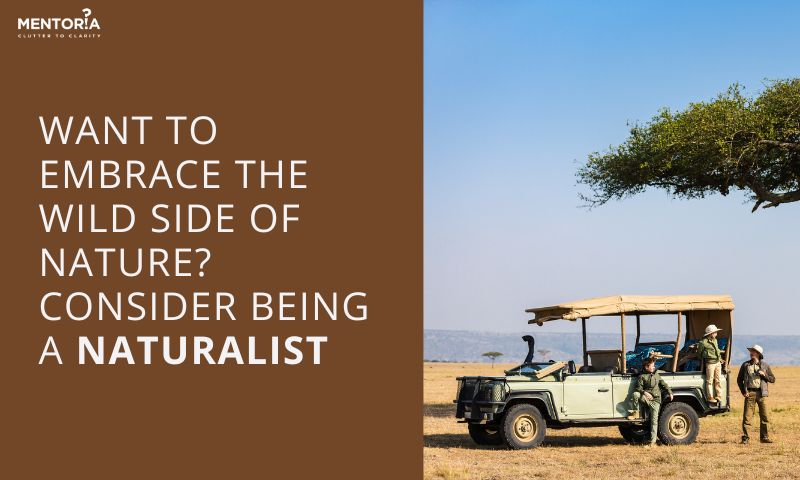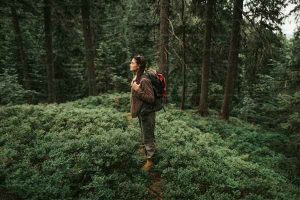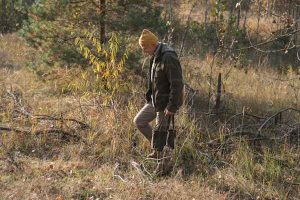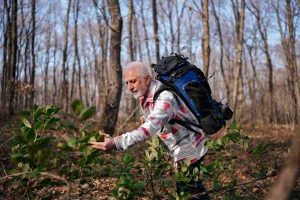Want To Embrace The Wild Side Of Nature? Consider Being A Naturalist

We often find ourselves longing for the company of nature, when we just want to be alone or we feel like we’re done with everything in life. At those moments, nature is always there for all of us, without fail. Have you ever found yourself binge-watching “Our Planet” on Netflix or dreaming of living David Attenborough’s life? Maybe you’ve been inspired by the recent hit movie “Avatar: The Way of Water” and its stunning depiction of alien ecosystems. If you can relate to these references and you are passionate about your surroundings, a career as a naturalist might just be your calling. Let’s see why a career as a naturalist could be your perfect path!
What Exactly Is A Naturalist?
First things first – what does a naturalist do? Naturalists are skilled observers and interpreters of nature, studying plants, animals, and their habitats. They often specialise in specific ecosystems or species, becoming experts in their chosen field. You could be the person who discovers a new species, like finding a real-life Niffler from “Fantastic Beast”! But being a naturalist is not just about observing and cataloguing. Naturalists play a crucial role in:
- Conservation efforts
- Environmental education
- Scientific research
- Ecotourism
- Policy-making and advocacy
5 Compelling Reasons To Consider This Career
You’ll Never Stop Learning
Nature is full of surprises, and as a naturalist, you’ll constantly discover new things. Every day in the field brings a new adventure. One day you’re tracking tigers, the next you’re identifying a rare butterfly species. It’s like being in a living, breathing classroom. The learning extends beyond just flora and fauna. You might find yourself studying climate patterns, geology, or even local cultures and their relationship with nature. It’s like being in your own personal episode of “Bill Nye Saves the World”, but with more mud and mosquitoes!
Opportunities for Learning:
- Attend workshops and conferences on environmental topics.
- Collaborate with scientists and researchers on innovative projects.
- Explore different ecosystems and biodiversity hotspots around the world.
Make A Real Difference
In an era of climate change and habitat loss, naturalists are on the front lines of conservation. Your work could directly contribute to protecting endangered species and preserving ecosystems for future generations.
You might find yourself:
- Conducting vital research on endangered species
- Restoring damaged habitats
- Educating communities about sustainable practices
- Influencing environmental policies
You could be a part of a team that brings a species back from the brink of extinction, like the California condor or the Indian rhino. Now that’s a storyline worthy of a Netflix documentary!
Diverse Career Opportunities
Contrary to popular belief, being a naturalist isn’t limited to working in national parks (though that’s an awesome option!). The career paths are as diverse as the ecosystems you might study. You could find yourself:
- Conducting research for environmental organisations or universities
- Leading eco-tours and wildlife expeditions (Indiana Jones, but with more science and less treasure hunting)
- Working in zoos or botanical gardens, perhaps even training animals like in “Jurassic World”
- Teaching environmental education in schools or nature centres
- Advising on wildlife documentaries (hello, BBC Earth!)
- Writing for nature magazines or creating content for wildlife channels
- Developing conservation apps or games
- Working as an environmental consultant for corporations or governments
Combine Passion With Profession
Let’s face it – how many people can say they absolutely love what they do? As a naturalist, your hobby becomes your career. You would get paid to snorkel with sea turtles and study coral reefs. It’s like living in your own episode of ‘Blue Planet‘!” You would wake up excited about work every day, whether you’re tracking snow leopards in the Himalayas or studying the social behaviour of elephants. Your office could be a rainforest, a savanna, or even the depths of the ocean. Talk about a room with a view!
Connect Deeply With Nature
As a naturalist, you have the unique opportunity to immerse yourself in the natural world. You’ll spend your days observing wildlife, studying ecosystems, and understanding the intricate relationships between different species. This profound connection with nature can lead to a greater appreciation for the environment and a more fulfilling life.
Benefits:
- Experience the beauty and tranquillity of the great outdoors.
- Develop a deeper understanding of ecological processes.
- Gain a sense of peace and mindfulness from being in natural settings.
Educational Pathways To Becoming A Naturalist
A career as a naturalist typically requires a solid educational background in environmental science, biology, or a related field. While a bachelor’s degree is often sufficient for entry-level positions, advanced roles may require a master’s degree or higher.
Key Steps:
- Bachelor’s Degree: Focus on majors like Environmental Science, Biology, or Ecology.
- Advanced Degrees: Pursue a Master’s or Ph.D. for specialised roles.
- Certifications and Training: Obtain certifications in areas like wildlife management, GIS, or environmental education.
- Internships and Volunteering: Gain practical experience through internships and volunteer work with conservation organisations.
What Else Can You Do To Get Started?
Excited about the possibilities? Here’s how you can start your journey:
- Volunteer for local environmental organisations or join nature clubs
- Attend nature camps, workshops, and wildlife photography courses
- Start your own nature journal, blog, or YouTube channel
- Consider internships at wildlife sanctuaries, national parks, or research institutions
- Participate in citizen science projects like bird counts or butterfly surveys
- Learn to identify local flora and fauna (there are great apps for this, like iNaturalist)
- Develop outdoor skills like hiking, camping, and animal tracking
Pro tip: Check out the Wildlife Institute of India (WII) and the Bombay Natural History Society (BNHS) for courses and opportunities in this field!
Develop Unique Skills
To thrive as a naturalist, you need a unique blend of skills and personal qualities. These attributes will help you effectively study and communicate about the natural world.
Essential Skills:
- Observation and Analytical Skills: Keen observation and the ability to analyse environmental data. (channelling your inner Jane Goodall)
- Communication Skills: Ability to convey complex information to diverse audiences. (think TED Talks, but in the great outdoors)
- Fieldwork Skills: Proficiency in outdoor survival and field research techniques.
- Technical Skills: Familiarity with GIS, remote sensing, and other scientific tools. (because every naturalist is part-time Nat Geo photographer)
Personal Qualities:
- Passion for Nature: A deep love for the natural world and commitment to conservation.
- Curiosity and Patience: Eagerness to learn and the patience to conduct detailed research.
- Physical Stamina: Ability to work in various weather conditions and rugged terrains.
- Empathy and Advocacy: A strong desire to educate others and advocate for environmental preservation.
These transferable skills can open doors to various career paths, even beyond the naturalist field. Who knows, you might even end up hosting your own nature show one day!
The Challenges (Because We’re Keeping It Real)
It’s not all sunshine and butterflies (though there’s plenty of those). Being a naturalist can involve:
- Long hours in challenging weather conditions (think “Man vs. Wild”, but with more clipboards)
- Remote postings away from urban amenities (your Instagram might suffer, but your soul will thank you)
- Competitive job market in some specialisations
- The emotional toll of witnessing habitat destruction and species loss
- Potentially lower salaries compared to some corporate jobs (but hey, job satisfaction is priceless!)
- Physical demands and potential health risks (insects, anyone?)
But for those who are passionate about nature, these challenges often pale in comparison to the rewards. As the saying goes, “Choose a job you love, and you’ll never work a day in your life.”
Ready To Take The Leap?
If you’re feeling inspired to explore a career as a naturalist, why not take the first step? Mentoria‘s career guidance sessions can help you understand the path ahead and how to align your interests with the right opportunities in this field.
Remember, choosing a career that resonates with your passion can lead to a fulfilling and impactful life. So, are you ready to answer the call of the wild? Curious about how to turn your love for nature into a thriving career? Book a session with Mentoria today and start your journey to becoming a naturalist! Who knows, you might be the next Steve Irwin in the making!










